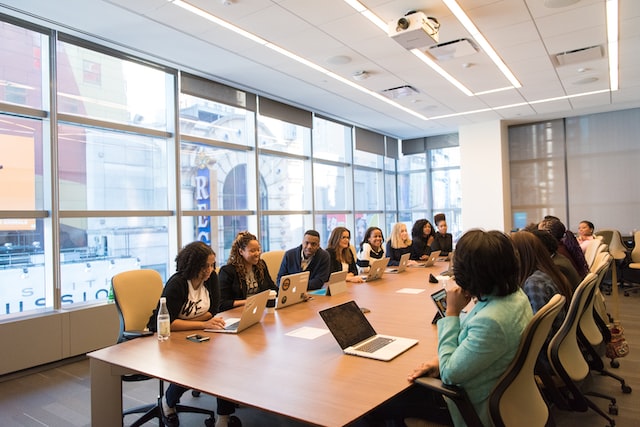Building a workforce requires a lot of thought to roles and departments you want to create or expand. Diversity and inclusion is one common talking point that has become central in every industry and sector. Society is constantly changing for the better, and people feel freer to live true to themselves, regardless of race, religion, sexuality, or gender.
But even with the strides made over time, a lot can still be done. This is especially true in the world of business on all levels, from small start-ups to large corporations. In fact, research from the UK government found that 78% of white people were employed while only 66% of people from all other ethnic groups were.
With this staggering statistic in mind, we’ll go through why diversity and inclusion (D&I) is so important to your business when employing workers in 2022. Additionally, we’ll consider how managers can help build a better workplace culture for D&I after the hiring process.
A crash course in diversity & inclusion
Before diving into how it can help your business, it’s important to know the difference between each term. Diversity refers to embracing and celebrating everyone’s backgrounds on an individual level, while inclusion is the idea of building an environment where each person feels welcomed and wanted.
These concepts work to tackle not only all forms of discrimination but also educate those who are less informed on social and cultural stereotypes. Businesses can benefit from creating a D&I plan that works not only to broaden their existing workplace environment but will also help with the hiring process. An example of this would be addressing the pay gap that exists across the country for women, minorities, and people living with disabilities and offering an equal, competitive salary.
Why D&I is important when filling roles
Druthers search has compiled statistics of workers and people looking for work who are women, LGBTQ+, and of races and religion other than white Christian who have been discriminated against in their workplace or are unemployed due to their background.
Some employers may only look for workers who have particular backgrounds. These can be in the forms of social class and education, or to the more extreme like race, gender, or belief system. However, this means you’re missing out on a much wider talent pool who are hardworking and creative and will bring a lot to your business. In fact, a study from Harvard Business Review found that companies that were more diverse in their workforce had a 19% higher innovation revenue.
A lack of diversity at your workplace could also negatively affect how potential candidates view your company. A survey by Glassdoor found that 76% of respondents viewed D&I as an important factor to consider when reviewing available roles and job offers. That means someone who would bring a huge value to your company and services could be swayed to apply and join if they see you have a positive environment to work in and feel included. For example, you run a construction business and need to figure out a budget for van leasing to expand your fleet. You could bring in someone with an incredible talent for finance management you may not have considered previously due to pre-existing gender biases in the industry.
Building a better workplace culture
Not only is understanding the difference between the two important, but knowing why businesses need to focus on them to create a healthy workplace is crucial. A survey by Ciphr found that of 2,000 working adults in the UK, more than a third experienced some form of workplace discrimination. Not only can this lead to many resignments, but it can also result in a negative image for your company and create a hostile working environment which can reduce productivity.
Building an environment that encourages D&I can reduce this possibility, but it must come from a top-down approach. Establishing that at a CEO and management level that are pushing for more diversity in hiring and inclusion for every employee can encourage the rest of the workforce to be more open to the strategies.
Diversity and inclusion is far more than just an HR issue. Building a culture and environment which sees people from all manner of backgrounds feels like they can achieve and be creative in your company. One way this could be done is by focussing on D&I training and resources throughout the business. By making sure that everyone from the top of your structure to the bottom will help build a foundation of understanding as to why it’s so important to be open to this change.


